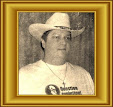There is a question that is common to believers, skeptics, children, and others about how the church got the books of the New Testament. (Someone said that the Bible was written by "old wise men," which shows an assertion based on massive ignorance.) It is also fair to ask what the early church accepted.
In the early days, Christians were persecuted and had to meet in secret. There were also false gospels and letters supposedly signed by the apostles that would crop up that had to be evaluated.
 |
| First page of Genesis, RGBStock / Billy Frank Alexander |
God inspired the Bible but worked through human authors and copyists who wrote the original copies of Scripture and copied, translated, and preserved them throughout history. Sometimes, it can be challenging to unravel the political, sociological, and geographic considerations to see God’s guiding hand superimposed over the process.
To read the rest of this short but useful article, click on "So Who Decided?" Also see this from a questions asked by atheists series, "Q41 Didn’t Constantine tell the bishops what to put in the Bible?"
